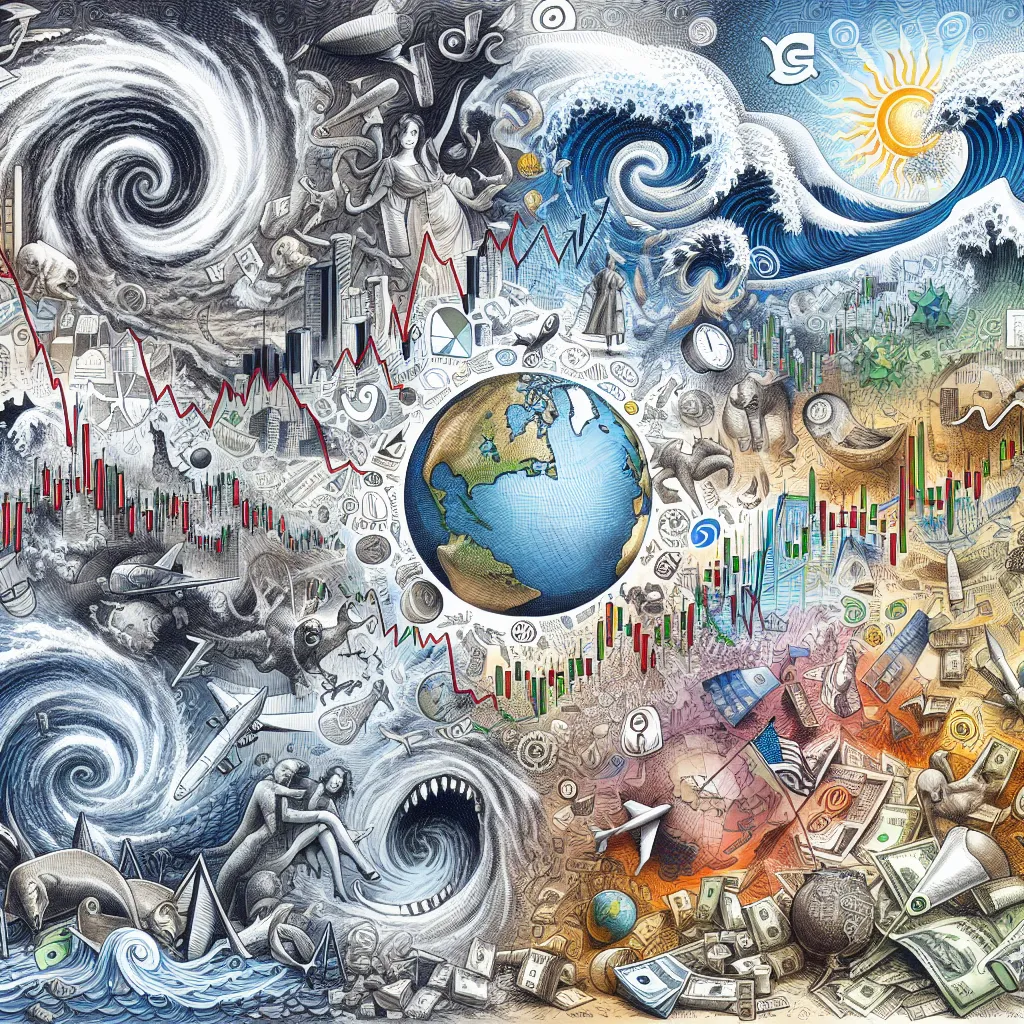As an experienced IELTS instructor, I’m excited to share with you a comprehensive IELTS Reading practice test focusing on the critical topic of “Impact of extreme weather events on global economies”. This practice test will help you sharpen your reading skills while exploring an important global issue. Let’s dive in!
 Economic impact of extreme weather
Economic impact of extreme weather
Introduction
Climate change has led to an increase in the frequency and intensity of extreme weather events worldwide. These events not only cause immediate damage to infrastructure and human life but also have far-reaching consequences on global economies. In this IELTS Reading practice test, we’ll explore various aspects of this topic through three passages of increasing difficulty.
IELTS Reading Practice Test
Passage 1 (Easy Text)
The Economic Cost of Extreme Weather
Extreme weather events have become increasingly common in recent years, causing significant economic damage across the globe. From hurricanes and floods to droughts and heatwaves, these natural disasters can have devastating effects on local and national economies.
One of the most immediate impacts of extreme weather is the destruction of infrastructure. Roads, bridges, buildings, and power grids can be severely damaged or destroyed, requiring massive investments for repair and reconstruction. This not only strains government budgets but also disrupts business operations and daily life for affected communities.
Agricultural sectors are particularly vulnerable to extreme weather events. Droughts can lead to crop failures, while floods can wash away entire harvests. These losses not only affect farmers’ livelihoods but can also lead to food shortages and price increases, impacting consumers worldwide.
Insurance companies face mounting challenges as the frequency and severity of extreme weather events increase. Higher payouts for disaster-related claims can lead to increased premiums for policyholders, making insurance less affordable for many individuals and businesses.
Tourism, a significant contributor to many economies, can also suffer due to extreme weather events. Popular destinations may become less attractive or even inaccessible, leading to a decline in visitors and revenue.
While the immediate costs of extreme weather events are often substantial, the long-term economic impacts can be even more significant. Repeated disasters can hinder economic growth, discourage investment, and perpetuate cycles of poverty in vulnerable regions.
As the global community grapples with the realities of climate change, understanding and mitigating the economic impacts of extreme weather events has become a crucial challenge for policymakers, businesses, and individuals alike.
Questions 1-7
Do the following statements agree with the information given in the passage?
Write:
TRUE if the statement agrees with the information
FALSE if the statement contradicts the information
NOT GIVEN if there is no information on this
- Extreme weather events have become less frequent in recent years.
- The destruction of infrastructure is an immediate consequence of extreme weather events.
- Extreme weather events only affect local economies, not national ones.
- Agricultural sectors are highly susceptible to extreme weather events.
- Insurance companies are reducing premiums due to increased extreme weather events.
- Tourism is always positively impacted by extreme weather events.
- The long-term economic impacts of extreme weather can be more significant than immediate costs.
Questions 8-13
Complete the sentences below.
Choose NO MORE THAN TWO WORDS from the passage for each answer.
- Extreme weather events can cause significant damage to ____ and human life.
- The destruction of infrastructure strains ____ budgets.
- Crop failures due to extreme weather can lead to ____ and price increases.
- Insurance companies face ____ challenges as extreme weather events become more frequent and severe.
- Popular tourist destinations may become less ____ due to extreme weather events.
- Repeated disasters can hinder economic growth and discourage ____.
Passage 2 (Medium Text)
Global Economic Ripple Effects of Extreme Weather
The interconnectedness of the global economy means that extreme weather events in one region can have far-reaching consequences across the world. This ripple effect is becoming increasingly apparent as climate change intensifies the frequency and severity of natural disasters.
Supply chain disruptions are one of the most significant ways in which extreme weather events can impact the global economy. When a major disaster strikes a region that is crucial for the production of certain goods or raw materials, it can lead to shortages and price spikes worldwide. For example, the 2011 floods in Thailand, a major hub for hard drive manufacturing, led to a global shortage of computer hard drives and a subsequent increase in prices.
Financial markets are also susceptible to the impacts of extreme weather events. Natural disasters can cause significant volatility in stock markets, particularly affecting industries directly linked to the affected regions or sectors. Insurance and reinsurance companies often see their stock prices fluctuate in the aftermath of major disasters as investors assess potential losses.
The energy sector is particularly vulnerable to extreme weather events. Hurricanes in the Gulf of Mexico, for instance, can disrupt oil and gas production, leading to price fluctuations in global energy markets. Similarly, droughts can affect hydroelectric power generation, forcing countries to rely more heavily on expensive fossil fuels.
International trade can be severely impacted by extreme weather events. Port closures due to hurricanes or floods can delay shipments, causing logistical nightmares for businesses relying on just-in-time inventory systems. These disruptions can lead to production delays and increased costs across various industries globally.
Climate change-induced extreme weather events are also influencing migration patterns, which in turn affects labor markets and remittance flows. As certain regions become less habitable due to recurring disasters, people may be forced to relocate, potentially straining resources in host countries and altering the dynamics of global labor markets.
The insurance industry plays a crucial role in mitigating the economic impacts of extreme weather events. However, as disasters become more frequent and severe, insurers are reassessing their risk models and pricing strategies. This could lead to higher premiums or reduced coverage in high-risk areas, potentially leaving some communities and businesses more vulnerable to economic losses.
Governments and international organizations are increasingly recognizing the need for global cooperation in addressing the economic challenges posed by extreme weather events. Initiatives such as the Paris Agreement aim to reduce greenhouse gas emissions and build resilience against climate-related disasters. However, the effectiveness of these efforts remains to be seen, and the global economy continues to grapple with the escalating costs of extreme weather.
Questions 14-19
Choose the correct letter, A, B, C, or D.
- According to the passage, extreme weather events in one region can:
A) Only affect the local economy
B) Have limited impact on other countries
C) Cause widespread effects across the global economy
D) Always lead to economic growth in other regions - The 2011 floods in Thailand affected the global economy by:
A) Causing a shortage of rice
B) Leading to a global shortage of computer hard drives
C) Disrupting the stock market
D) Increasing oil prices - How do extreme weather events affect financial markets?
A) They always cause markets to crash
B) They have no impact on stock prices
C) They can cause volatility, particularly in certain industries
D) They only affect local stock exchanges - The energy sector is vulnerable to extreme weather events because:
A) It relies solely on renewable energy sources
B) Natural disasters can disrupt production and affect prices
C) It is not affected by climate change
D) Extreme weather increases energy demand - How do extreme weather events impact international trade?
A) They have no effect on global trade
B) They only affect air transportation
C) They can cause delays and increased costs across various industries
D) They always lead to increased trade volumes - The insurance industry’s response to increasing extreme weather events includes:
A) Lowering premiums for all customers
B) Ignoring climate change in their risk assessments
C) Reassessing risk models and pricing strategies
D) Providing unlimited coverage in all areas
Questions 20-26
Complete the summary below.
Choose NO MORE THAN TWO WORDS from the passage for each answer.
Extreme weather events can have significant impacts on the global economy through various mechanisms. Supply chain (20)____ can lead to shortages and price increases worldwide. Financial markets may experience (21)____ as investors react to natural disasters. The energy sector is particularly (22)____ to extreme weather, with events like hurricanes affecting production and prices. International trade can be disrupted by port closures, causing (23)____ for businesses. Climate change is also influencing (24)____, which affects labor markets and remittance flows. The insurance industry plays a crucial role in (25)____ economic impacts but may need to adjust its strategies. Addressing these challenges requires global (26)____ and initiatives like the Paris Agreement.
Passage 3 (Hard Text)
Cascading Effects: The Complex Interplay Between Extreme Weather and Global Economic Systems
The intricate web of global economic systems is increasingly susceptible to the cascading effects of extreme weather events, a phenomenon that has garnered significant attention from economists, policymakers, and climate scientists alike. As the frequency and intensity of these events escalate due to climate change, their impacts reverberate through multiple sectors and across geographical boundaries, creating a complex tapestry of economic challenges and opportunities.
One of the most profound ways in which extreme weather events influence the global economy is through their impact on agricultural productivity and food security. The agricultural sector, which forms the backbone of many developing economies, is particularly vulnerable to climate variability. Extreme events such as prolonged droughts, unseasonable frosts, or devastating floods can decimate crops, leading to food shortages and price volatility in global markets. This volatility not only affects consumers worldwide but can also trigger social unrest and political instability in food-insecure regions, potentially leading to broader geopolitical ramifications.
The insurance and reinsurance industries find themselves at the forefront of managing the financial risks associated with extreme weather events. As the frequency and severity of these events increase, traditional risk assessment models are being challenged, necessitating a paradigm shift in how insurance products are designed and priced. The concept of “climate risk” is becoming increasingly central to actuarial science, with implications for everything from property insurance to sovereign debt ratings. This evolution in the insurance sector has far-reaching consequences for investment patterns, urban development, and even national economic policies.
Global supply chains, which have become increasingly complex and interdependent in the era of globalization, are particularly susceptible to disruptions caused by extreme weather events. The just-in-time inventory systems that many industries rely on can be thrown into disarray by even localized disasters, leading to production bottlenecks and shortages that ripple across the globe. For instance, the 2011 floods in Thailand not only affected local manufacturing but also led to global shortages in hard drives and disrupted automotive production in countries as far away as the United States and Japan. This interconnectedness means that the economic impacts of extreme weather events are often felt far beyond the immediately affected region.
The energy sector, a cornerstone of modern economies, is undergoing a transformation partly driven by the need to mitigate and adapt to extreme weather events. While traditional fossil fuel-based energy infrastructure is vulnerable to physical damage from storms, floods, and heatwaves, the transition to renewable energy sources presents both challenges and opportunities. Diversifying energy portfolios to include more resilient and decentralized sources like solar and wind power can enhance energy security and reduce vulnerability to extreme weather events. However, this transition requires significant investment and can lead to short-term economic disruptions as economies adjust.
Financial markets are increasingly factoring in climate risks, with extreme weather events influencing investment decisions and asset valuations. The concept of “stranded assets” – assets that lose value or become liabilities due to climate-related factors – is gaining prominence in financial circles. This shift in perspective is driving changes in capital allocation, with investors increasingly favoring companies and projects that demonstrate climate resilience. Consequently, regions and industries perceived as high-risk due to their vulnerability to extreme weather events may face challenges in attracting investment, potentially exacerbating economic disparities.
The tourism industry, which contributes significantly to the GDP of many countries, is particularly sensitive to extreme weather events. While some destinations may benefit from changing climate patterns, others face existential threats. Small island developing states, for instance, are grappling with the dual challenges of rising sea levels and more intense tropical cyclones, which threaten their tourism-dependent economies. The economic implications extend beyond the immediate loss of tourism revenue to include impacts on employment, foreign exchange earnings, and investment in tourism infrastructure.
As the global community grapples with these multifaceted challenges, there is a growing recognition of the need for integrated approaches to climate resilience and economic development. Nature-based solutions, such as mangrove restoration for coastal protection or agroforestry for sustainable agriculture, are gaining traction as cost-effective strategies that offer multiple co-benefits. Similarly, innovations in climate finance, including catastrophe bonds and parametric insurance, are emerging as tools to transfer and manage climate risks more effectively.
The cascading effects of extreme weather events on global economic systems underscore the interconnectedness of environmental and economic sustainability. As we navigate this complex landscape, it becomes increasingly clear that addressing the economic impacts of extreme weather requires not only technological and financial innovations but also a fundamental reevaluation of our economic models and priorities. The path forward demands unprecedented levels of global cooperation, adaptive policymaking, and a willingness to embrace transformative change in pursuit of a more resilient and sustainable global economy.
Questions 27-32
Choose the correct letter, A, B, C, or D.
- According to the passage, the agricultural sector is:
A) Immune to climate variability
B) Only affected by droughts
C) Particularly vulnerable to extreme weather events
D) The least important sector in developing economies - The insurance industry is responding to increased extreme weather events by:
A) Ignoring climate risks
B) Lowering all premiums
C) Redesigning products and risk assessment models
D) Focusing only on property insurance - Global supply chains are susceptible to extreme weather events because:
A) They rely on outdated technology
B) They are not interconnected
C) Just-in-time inventory systems can be easily disrupted
D) They only exist in developed countries - The energy sector’s transformation in response to extreme weather events involves:
A) Exclusively using fossil fuels
B) Ignoring renewable energy sources
C) Diversifying energy portfolios to include more resilient sources
D) Reducing overall energy production - The concept of “stranded assets” in financial markets refers to:
A) Assets that gain value due to climate change
B) Assets that lose value or become liabilities due to climate-related factors
C) Assets that are always profitable
D) Assets that are not affected by extreme weather - Nature-based solutions are described in the passage as:
A) Ineffective against extreme weather
B) Only suitable for developed countries
C) Cost-effective strategies with multiple benefits
D) Harmful to economic development
Questions 33-40
Complete the summary below.
Choose NO MORE THAN THREE WORDS from the passage for each answer.
Extreme weather events have complex and far-reaching impacts on the global economy. The agricultural sector is particularly vulnerable, with events like droughts and floods affecting (33)____ and potentially leading to social unrest. The insurance industry is adapting by incorporating (34)____ into their models. Global supply chains can be disrupted by localized disasters, causing (35)____ that affect multiple countries. The energy sector is transitioning to include more (36)____ sources to enhance resilience. Financial markets are considering climate risks, with the concept of (37)____ influencing investment decisions. The tourism industry in some regions, particularly (38)____, faces significant challenges due to climate change. To address these issues, there is growing interest in (39)____ and innovations in climate finance. Addressing the economic impacts of extreme weather requires global cooperation and a (40)____ of economic models and priorities.
Answer Key
Passage 1
- FALSE
- TRUE
- FALSE
- TRUE
- FALSE
- FALSE
- TRUE
- infrastructure
- government
- food shortages
- mounting
- attractive
- investment
Passage 2
- C
- B
- C
- B
- C
- C
- disruptions
- volatility
- vulnerable
- logistical nightmares
- migration patterns
- mitigating
- cooperation
Passage 3
- C
- C
- C
- C
- B
- C
- food security
- climate risk
- production bottlenecks
- resilient and decentralized
- stranded assets
- small island developing states
- nature-based solutions
- fundamental reevaluation
This IELTS Reading practice test on “The Impact of Extreme Weather Events on Global Economies” covers various aspects of how climate change and extreme weather affect economies worldwide. It progresses from easier to more challenging texts, helping you build your reading skills and vocabulary related to this important topic.
Remember to practice time management and develop strategies for quickly identifying key information in the passages. If you’re looking to further improve your IELTS Reading skills, you might find our article on the effects of climate change on the global economy helpful. Additionally, for more practice on environmental topics, check out our resources on the impact of renewable energy on national security.
Keep practicing, and good luck!


